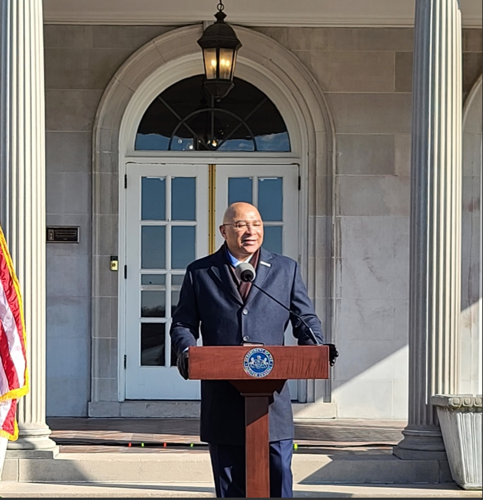By Anthony Hennen | The Center Square
(The Center Square) – A roundtable discussion held Tuesday with two of Pennsylvania’s top fiscal watchdogs focused on how the legislature could strengthen oversight of state finances.
It also touched on the negative costs to taxpayers if spending isn’t watched closely.
The discussion, called by House Republican Appropriations Chairman Seth Grove, R-York, follows a report from Auditor General Timothy DeFoor that found school districts hid hundreds of millions of dollars by exploiting a legal loophole that allowed them to raise taxes without a public vote.
DeFoor argued his office could do more, if only it had subpoena power.
“The attorney general of course has it, the treasurer has it, we don’t,” he said. “As long as we don’t have subpoena power, we’re basically fighting with one hand tied behind our back.”
DeFoor pointed to past audits where the office couldn’t get all the information requested or received redacted documents. Issuing a subpoena could compel organizations to provide that information.
But first, the General Assembly must pass a law to share the power with the auditor general.
DeFoor also emphasized the importance prioritizing pension obligations to ease taxpayer burden. When a plan is underfunded and local officials fail to contribute the money necessary, residents foot the bill.
Nor is that problem only theoretical. The City of Chester is a cautionary tale, he said.
“The City of Chester, because they had not contributed what they were legally required to put into their employees’ pension plans … their pension was $34 million in the hole,” DeFoor said. “Now, they still haven’t contributed — now they’re like $56 million in the hole.”
The auditor’s office provides state aid for distressed pension plans, but DeFoor advocates for stronger restrictions on those funds.
“One thing is I’m not sure if there’s a legal requirement — although we provide those funds, I’m not sure there’s a legal requirement that those funds have to go directly into the pension plan,” DeFoor said.
The legislative solution, DeFoor said, would be to earmark aid for specific purposes.
